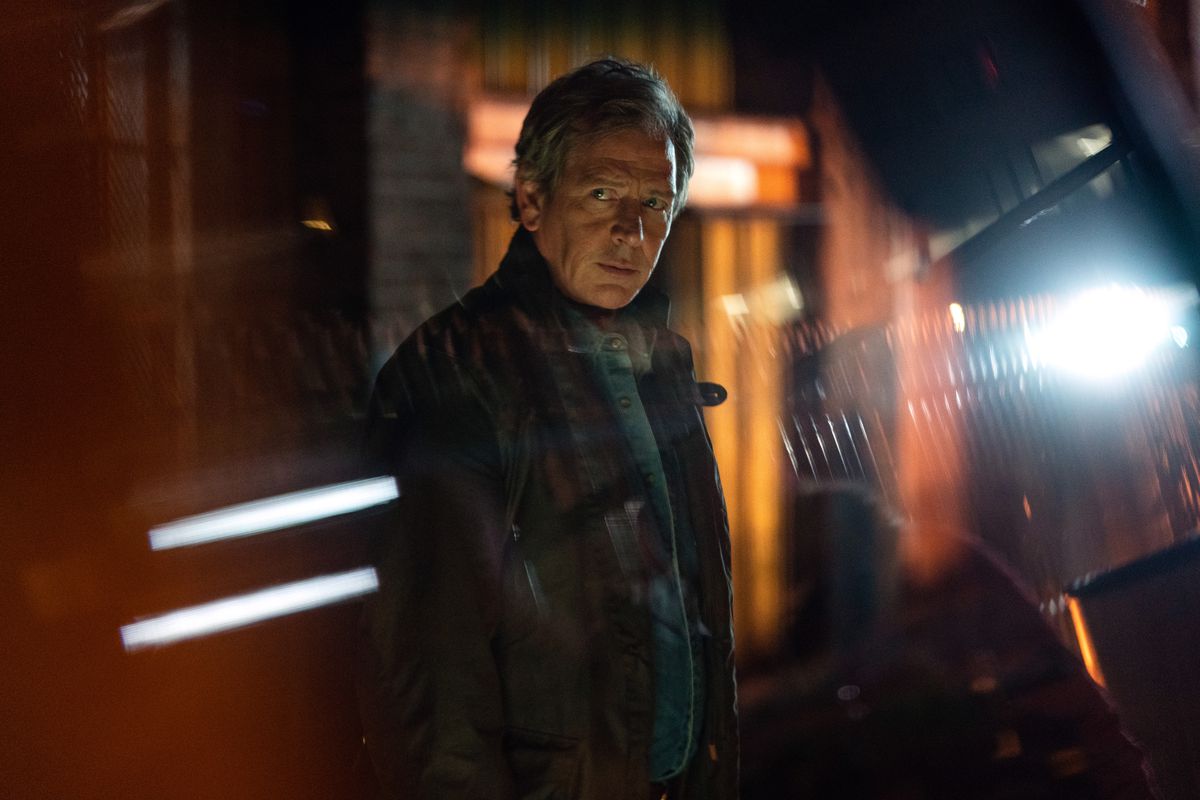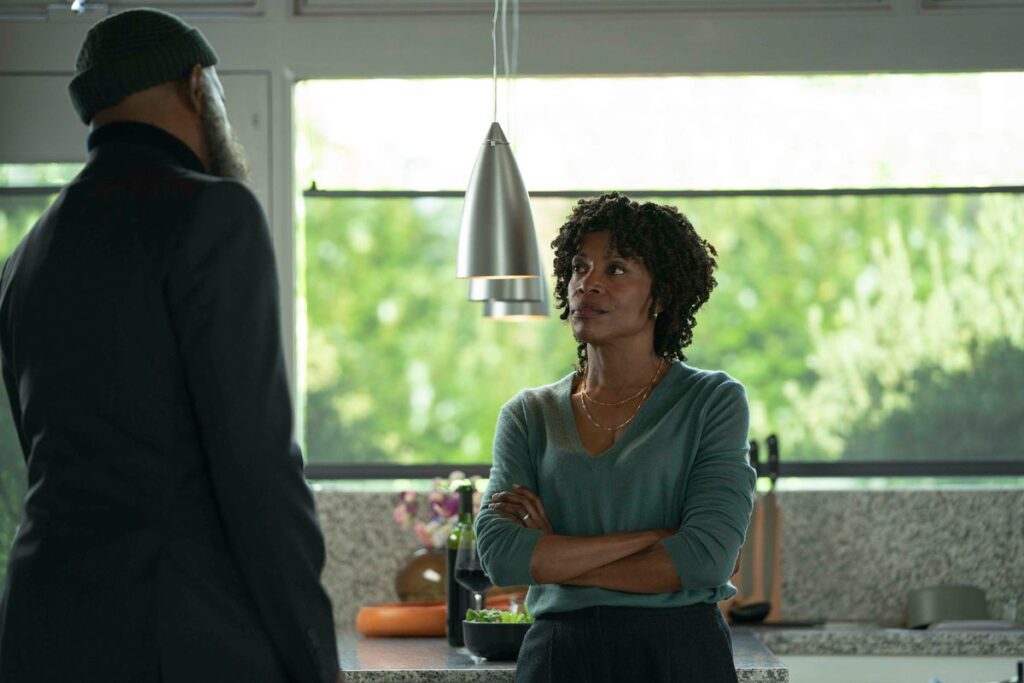TV writers have a saying: Skrull me once, shame on you. Skrull me twice? Shame on me.
[Ed. note: Spoilers for the latest episode of Secret Invasion follow.]
Last week’s episode of Secret Invasion ended on twin cliffhangers: Gravik (Kingsley Ben-Adir) killing G’iah (Emilia Clarke), and Nick Fury’s (Samuel L. Jackson) secret wife Priscilla (Charlayne Woodard) receiving instructions to a secret meeting, presumably with the Bad Guys.
This week’s episode, “Beloved,” immediately resolves both of these, the first poorly, the latter less so.
In a move that feels obvious, G’iah is not dead, and her “killing” serves mostly as an excuse to reveal that she’s infected herself with Extremis, which heals her shortly after Gravik leaves her body in the woods.
As for Priscilla, she’s “working” for James Rhodes (Don Cheadle), who is in fact a Skrull. Fury suspects something is amiss, bugs their meeting, and afterward sits down with Priscilla to have a conversation about where they stand — which is, they decide, with each other. This isn’t as troublesome a resolution, though it’s still a little undercooked. Priscilla is a new character and an unknown quantity, and Secret Invasion’s writers are right to leave viewers guessing about her loyalties — they just don’t have the run time to play up any paranoia. The question is simply raised and answered an episode later.
Photo: Gareth Gatrell/Marvel Studios
G’iah’s fake-out death, however, just gets more annoying by the time “Beloved” ends, as the episode’s final beat is Gravik stabbing Talos (Ben Mendelsohn), presumably to his death.
The question I have for Secret Invasion is this: Is that all we have here? To leave characters’ lives in limbo two episodes in a row?
Cliffhanger deaths and death fake-outs are TV tropes as old as time. They can even be done quite well (an episode of Poker Face — I won’t spoil which — is very good at this). But Secret Invasion has a cliffhanger problem, which is an extension of a tension problem, which itself is endemic to streaming television.
A good cliffhanger can leave a character’s fate in question — even if we know they will be fine — provided that we care about the character. A great cliffhanger recontextualizes everything we’ve seen before, leaving the audience wondering how the plot will unfold with the new understanding they’ve been given.
Secret Invasion’s cliffhangers do neither. As a new character, Priscilla has no relationship with the audience, and only connects to one character — Nick Fury. Her impact on the world of Secret Invasion is, at best, limited. In a purported spy thriller like Secret Invasion, the hope with a character like hers is that she becomes another vector for tension, another potential risk in a game of spies and saboteurs.

Photo: Gareth Gatrell/Marvel Studios
Unfortunately, Secret Invasion is a spy show without much spying, and a paranoid thriller without a whole lot of paranoia. Most of its cards are laid out on the table for the audience, and what isn’t is intentionally withheld — not for character reasons, but to generate cliffhangers with necessary plot points that a defter show would fold into its character arcs.
In this regard, Talos’ “death” isn’t the best cliffhanger, but it could’ve been a solid one — if we hadn’t just gotten a fake-out in the very same episode. Currently, he’s the only character besides Fury that the audience may have any fondness for, and the character wrestling with the bulk of the story’s messy themes of asylum, integration, and belonging. In this regard, killing Talos off here seems like it would shortchange those themes, even if Secret Invasion’s writers intend to carry them forward with G’iah (who, conveniently, is now powered up enough to face off with a super Skrull).
This isn’t a problem unique to Marvel. Streaming television is designed to keep the viewer bingeing, and in the rush to keep you blazing through your queue, moments of consequence to the plot are often withheld until the final few moments of an episode, where something finally happens and you feel compelled to watch the next, in the hopes that something else might happen soon.
These are cheap, and forgettable. Good cliffhangers, the ones that linger in your mind long after you’re done watching (like Nathan Fielder walking into his subjects’ home in The Rehearsal, or Suletta Mercury brutally killing a man to save Miorine with no qualms at all in The Witch From Mercury, or Kino Loy telling Andor how many guards there are on each floor in Andor) also demonstrate an understanding of why you’re watching. Secret Invasion, like a lot of streaming television, is built with the assumption that your attention is a given. That you are watching just because the show is there to watch.
The bummer is, Skrulls could’ve made for great cliffhangers. In a show where everyone’s identity is supposedly suspect, Secret Invasion has somehow made it so no one’s is.

